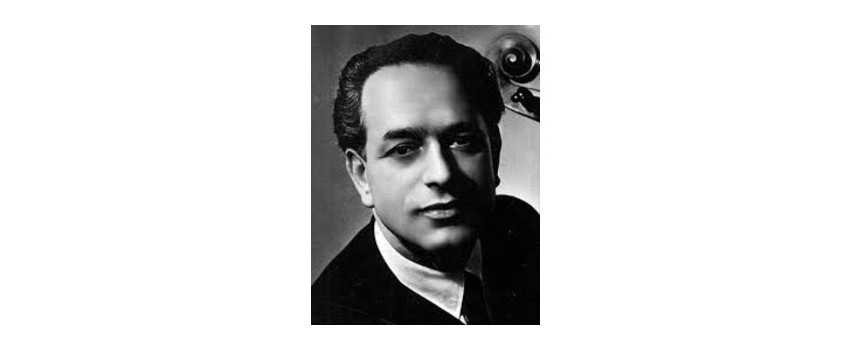Casorti, Bow Technique Op. 50 (Peters)
Casorti, Bow Technique Op. 50 for violin (Edition Peters)
Gaspar Cassado was a man of many talents. He was not only a brilliant cellist but also a prolific composer, conductor, and teacher. Born on September 30, 1897, in Barcelona, Spain, Cassado showed early signs of musical genius. He began playing the cello at six and quickly rose to become one of the most prominent cellists of the 20th century.
Cassado was born into a musical family. His father, Joaquín Cassadó, was a composer, and his mother, Agustina Comaposada, was a pianist. When Cassado was six, his father taught him how to play the cello. Cassado showed remarkable talent and quickly became a child prodigy, performing in public at seven. Cassado's family recognized his talent and encouraged him to pursue a music career. He studied cello with Pau Casals, the renowned Spanish cellist, and composition with Joaquín Rodrigo, the famous Concierto de Aranjuez composer. World War I interrupted Cassado’s education, but he continued to perform and compose during the war. After the war, he resumed his studies and graduated from the Paris Conservatoire in 1921.
Cassado's career as a cellist took off in the 1920s. He toured extensively throughout Europe, Asia, and the Americas, performing with some of the world's leading orchestras. Cassado's virtuosity on the cello was unparalleled, and he became known for his passionate performances and technical brilliance. Unfortunately, the Spanish Civil War interrupted Cassado’s career as a soloist in 1936. He returned to Spain and joined the Republican Army as a medic. After the war, he resumed his career as a cellist and focused more on his compositions. Cassado's most famous work is his Suite for Solo Cello. The piece is a tour-de-force for the cello, highlighting Cassado's instrument mastery. It is a challenging piece to play and is considered one of the most important works for solo cello in the 20th century.
Cassado's compositions are characterized by their Spanish flavor and his love of folk music. He was influenced by the works of Manuel de Falla and Joaquín Rodrigo and incorporated elements of Spanish folk music into his compositions. Cassado's music is known for its lyrical melodies, complex harmonies, and virtuosic cello writing. Cassado's compositions range from solo works, such as his Suite for Solo Cello, to chamber music, such as his Trio for Violin, Cello, and Piano, to orchestral works, such as his Concerto for Cello and Orchestra. Cellists worldwide perform his music regularly, and his works have become staples of the cello repertoire.
Cassado's legacy in the music world is significant. He was one of the most important cellists of the 20th century, and his compositions continue to be performed and recorded today. Cassado's influence on the cello world can be seen in the works of other prominent cellists, such as Yo-Yo Ma, who has cited Cassado as an inspiration. In addition to his contributions to the cello world, Cassado was also a respected conductor and teacher. He conducted many of the world's leading orchestras and taught at the Siena Music Festival and the Prades Festival. His students included some of the most prominent cellists of the 20th century, such as Maurice Gendron and Jacqueline du Pré.
Cassado's influence on Spanish music must be balanced. He was one of the pioneers of the Spanish musical Renaissance, which sought to promote Spanish music and culture worldwide. Cassado's compositions incorporated Spanish folk music elements and helped establish a distinctly Spanish sound in classical music. However, Cassado also worked to promote the music of his contemporaries. For example, he was a champion of the works of Manuel de Falla and Joaquín Rodrigo and helped to establish their music as an important part of the classical repertoire. Cassado's contributions to Spanish music have had a lasting impact, and his legacy inspires new generations of Spanish musicians.
Gaspar Cassado was a musical genius who left an indelible mark on the classical music world. His virtuosity on the cello and innovative compositions inspire musicians worldwide. Cassado's legacy is one of passion, dedication, and excellence, and his life serves as a reminder of the power of music to uplift and inspire.

Casorti, Bow Technique Op. 50 for violin (Edition Peters)
Cassado, Canzone e Pastorella for Cello and Piano
Cassado, Requiebros for Cello and Piano
Cassado, Toccata for Cello and Piano (Universal)